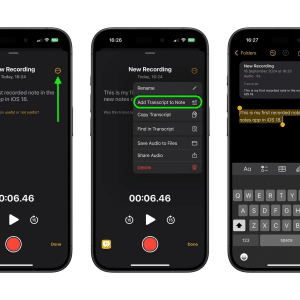SAN FRANCISCO – Technology companies and industry groups took President Barack Obama’s speech on U.S. surveillance as a step in the right direction, but chided him for not embracing more dramatic reforms to protect people’s privacy and the economic interests of American companies that generate most of their revenue overseas.
“The president’s speech was empathetic, balanced and thoughtful, but insufficient to meet the real needs of our globally connected world and a free Internet,” said Ed Black, president of the Computer & Communications Industry Association, a group that represents Google, Microsoft, Facebook and other technology companies upset about the NSA’s broad surveillance of online communications.
On Friday, the president called for ending the government’s control of phone data from hundreds of millions of Americans and ordered intelligence agencies to get a court’s permission before accessing such records. He also issued a directive that intelligence-gathering can’t be employed to suppress criticism of the United States or provide a competitive advantage to U.S. companies.
In addition, the president directed Attorney General Eric Holder and Director of National Intelligence James Clapper to consider whether new privacy safeguards could be added to online data gathering. Although those activities are only meant to target people outside the U.S. as part of national security investigations, information on Americans sometimes gets swept up in the collection.
Eight of the world’s best-known technology companies underscored their common interest in curbing the NSA by releasing a joint, measured critique of Obama’s proposal. They applauded the commitment to more transparency and more privacy protections for non-U.S. citizens, but also stressed that the president didn’t address all their concerns.
“Additional steps are needed on other important issues, so we’ll continue to work with the administration and Congress to keep the momentum going and advocate for reforms consistent with the principles we outlined in December,” said the statement from Google, Apple, Yahoo, Microsoft, Facebook, Twitter, LinkedIn and AOL.
In his speech, Obama also directed Holder and Clapper to look into new restrictions on the length of time the U.S. can hold data collected overseas and the extent to which that data is used. He added that the U.S. won’t spy on regular people who don’t threaten national security.
But nothing he said is likely to diminish the potential losses facing the U.S. technology industry, said Daniel Castro, a senior analyst for the Information Technology and Innovation Foundation, a Washington D.C. think tank.
The ITIF estimates that the doubts raised by the NSA spying could cost U.S. companies as much as $35 billion over the next three years.
In the aftermath of recent NSA leaks, the companies set aside their competitive differences to come together and urge Obama to curtail the NSA’s online snooping and lift restrictions that prevent companies from publicly disclosing specifics about how frequently they are asked to turn over their users’ personal information in the name of national security.
Obama did agree to at least one major concession to the technology industry by pledging “to make public more information than ever before about the orders they have received to provide data to the government.” The companies are hoping greater transparency will show that the U.S. government has only been demanding information about a very small fraction of their vast audiences.
But the promise of more disclosure didn’t satisfy two different groups focused on online privacy and other digital rights.
“Far more needs to be done to restore the faith of the American people and repair the damage done globally to the U.S. reputation as a defender of human rights on the Internet,” said Greg Nojeim, senior counsel at the Center for Democracy & Technology.
Cindy Cohn, legal director for the Electronic Frontier Foundation believes there’s still a long way to go. “Now it’s up to the courts, Congress, and the public to ensure that real reform happens, including stopping all bulk surveillance – not just telephone records collection,” she said.
Recent revelations about how much information the U.S. government has been vacuuming off the Internet threaten to undercut the future profits of technology companies that depend on the trust of Web surfers and corporate customers.
U.S. Internet companies are worried that more people, especially those living outside the U.S., will use their products less frequently if they believe their personal data is being scooped up and stored by the U.S. government.
Less online traffic would result in fewer opportunities to sell the ads that bring in most of the revenue at companies such as Google, Facebook and Yahoo. There is also concern that foreigners will be reluctant to do business with a wide range of U.S. companies that sell online storage and software applications that require an Internet connection.
Obama’s proposal made “progress on the privacy side, but it doesn’t address the economic issues,” Castro said. “I don’t see anything in the speech that will prevent companies in other countries from using what the NSA is doing to gain a competitive advantage over the U.S. companies.”
Associated Press/AP Online














